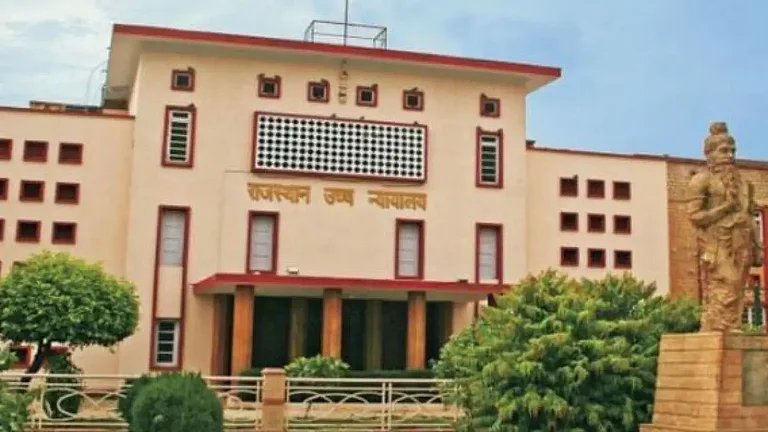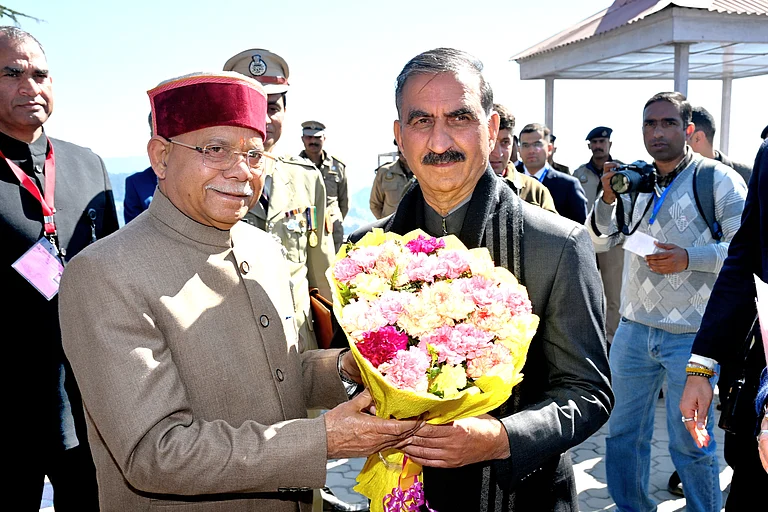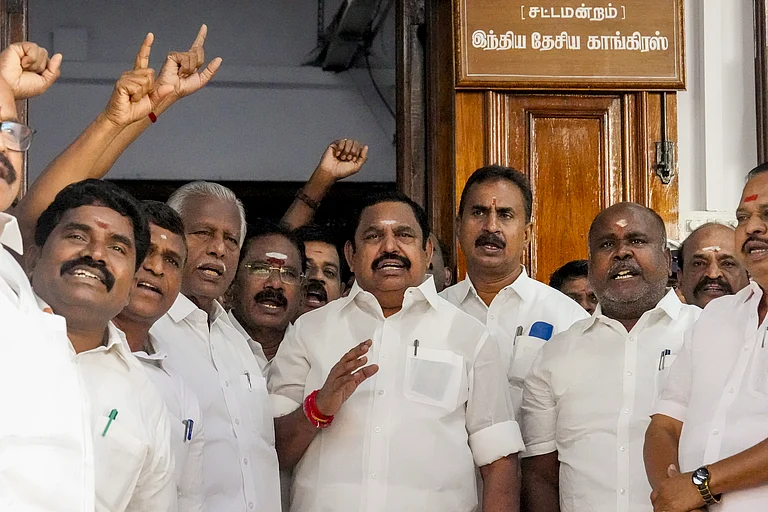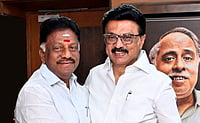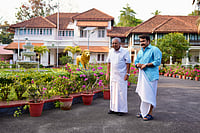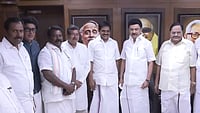
Thirteen of the 14 Universities in Kerala do not have permanent Vice-Chancellors due to the tussle between the Chancellor and the Government
The Higher Education sector has become a battlefield after the Chancellors disregarded the state government’s opinion on the appointment of VCs
Political parties are keen to control the education system, not concerned about the quality of the education, experts say.
Kerala University, one of the oldest universities in the country, has acquired a dubious distinction — it is the only university in India to have two Registrars functioning simultaneously. One Registrar has been appointed by the Vice-Chancellor, while the Syndicate has installed another.
The unusual arrangement is more than a quirk of administration; it lays bare the deep fissures paralysing the state’s higher education sector. With the Vice-Chancellor and the Syndicate locked in a prolonged turf war, the university’s day-to-day functioning has slipped into confusion, delaying key academic and administrative decisions.
Insiders say the “dual Registrar system” has left the institution in a state of perpetual stalemate, with files moving in circles and students bearing the brunt of the dysfunction.
The presence of two Registrars and the resulting stalemate highlight not just the crisis within Kerala University but the broader dysfunction in Kerala’s higher education system. The sector has become a battlefield between the Governor, who serves as Chancellor, and the state government. The CPI(M)-led government accuses the Governor of disregarding its recommendations and attempting to saffronise higher education, while the Governor insists that he is upholding regulations and protecting university autonomy.
As the power struggle between the Governor and the elected Government drags on, 13 of Kerala’s 14 universities remain without permanent Vice-Chancellors. The administrative deadlock has stalled centrally funded projects, with Kerala University now at risk of losing grants under the Pradhan Mantri Uchchhatar Shiksha Abhiyan (PM-USHA), meant for infrastructure development. Not a single rupee of last year’s allocation has been utilised, owing to the tussle between the Vice-Chancellor and the Syndicate. The impasse has deepened further, as the Vice-Chancellor has not convened a Syndicate meeting for the past three months, despite the university statutes mandating that it be held at least once every two months.
“The crisis is the result of the politicisation of higher education in Kerala. While the Governor, in his capacity as Chancellor, is attempting to saffronise the higher education sector, the state government is imposing its political agenda, disregarding the interests of the students. Now, due to the administrative deadlock, the University is going to lose funds from the UGC and the Union government,” says Ahmed Faiz, Syndicate member of the Kerala University.
He adds, "Even the degree certificates of the students are not being distributed. I have serious doubts that those who don’t want to resolve the issue are behaving at the behest of the private universities. According to preliminary reports, more than 8000 seats are vacant in the government colleges affiliated with the university.”
Last October, Higher Education Minister Dr R Bindu presented figures regarding the vacant seats in the university-affiliated colleges in the state. According to her, under the four major universities in Kerala, MG, Calicut, and Kannur, the total number of vacant seats for undergraduate courses was 85,525, and for postgraduate courses, 13,000. That is almost 40 per cent of the total seats. According to academicians Outlook spoke to, the situation could worsen this year, with prolonged delays in academic processes likely to further disadvantage students.
The tussle over Kerala’s universities traces back to Governor Arif Muhammad Khan’s tenure. The conflict began during the Indian History Congress at Kannur University, where the Governor alleged he was heckled by eminent historian Prof. Irfan Habib, and accused Vice Chancellor Dr. K. Gopinath of failing to ensure his security. The standoff soon escalated into a political confrontation, with the Governor, as Chancellor, appointing Vice-Chancellors without regard for the state government’s recommendations. In retaliation, the state government moved to amend university laws to strip the Governor of his role as Chancellor. The state government argued that the amendment was meant to block attempts at saffronisation of higher education in the state. The Governor, however, withheld assent to the bill, prompting the Government to challenge his decision in the Supreme Court. The case is still pending before the apex court.
The administrative deadlock in Kerala’s universities has continued even after Rajendra Arlekar assumed charge as Governor, leaving 13 institutions without permanent Vice Chancellors.
The administrative deadlock in Kerala University shows no sign of resolution, with students bearing the brunt as the standoff between the Vice-Chancellor, the Syndicate, and the Chancellor continues.
The crisis began when Vice-Chancellor Mohanan Kunnummal suspended Registrar K. S. Anil Kumar for cancelling a private event at the Senate Hall attended by Governor Rajendra Arlekar, where a portrait of Bharat Mata holding a saffron flag was displayed. A week later, the Syndicate—dominated by Left-affiliated members—revoked the suspension, arguing that the Vice Chancellor lacked the authority to act under the Kerala University Act.
The dispute has left the university in disarray, with the unusual situation of two Registrars and serious disruptions to administrative work. The issuance of degrees and postgraduate certificates has been delayed, affecting students’ future plans.
Observers say the tussle has turned higher education in Kerala into a political battlefield. “Both the BJP and the CPI(M) have reduced the universities to arenas of political contest. Unlike earlier Left governments, the present dispensation is giving short shrift to the quality of education. Instead of entrusting academic matters to scholars, it has left everything to Left-leaning teachers’ associations. This has harmed both administration and academic standards,” said R. S. Sasi Kumar of the Save University Campaign Committee. He alleged that the Government, through the Syndicate, had appointed CPI(M)-aligned candidates as faculty members, sidelining meritorious aspirants.
Supporters of the Government, however, place the blame squarely on the Chancellor and his political agenda. “The Kerala government has taken every possible measure to improve the quality of higher education. The four-year degree courses are an example of innovation. But the Chancellor is wreaking havoc by appointing right-wing nominees to higher bodies of the universities. This is the real cause of trouble,” said Syndicate member Dr. Manoj T. R.
The broader impact of the crisis is reflected in student migration trends. According to the Kerala Migration Survey 2023, published last year, the number of emigrant students has doubled in five years—from 1.3 lakh in 2018 to 2.5 lakh in 2023. While experts cite multiple reasons, they acknowledge that political interference and the uncertain state of higher education in Kerala are key drivers.
“Poor students and their parents are the real sufferers. The elite can turn to private or foreign universities. But everyone here is more concerned with controlling education than improving it. The BJP is desperate to tighten its grip on higher education, while the state government has failed to take proactive steps to break the deadlock. At the end of the day, it is the state’s responsibility to ensure the system runs smoothly, and that requires appointing people of impeccable academic quality,” said Dr. J. Prabhash, former head of the Department of Political Science at Kerala University.
The Supreme Court, which heard the matter last week, urged both the Kerala Government and the Governor to work together to resolve the issue, stressing that “students should not suffer.” However, there is still no indication that either side is willing to heed the apex court’s advice.








